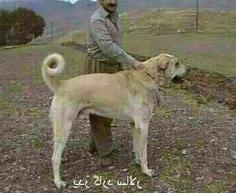- Breed Category: Working dog
- Country of Origin: Assyria (modern-day Iraq)
- Average Height: Male: 70-80 cm, Female: 65-75 cm
- Average Weight: Male: 50-70 kg, Female: 40-60 kg
- Average Life Span: 10-12 years
- Grooming Requirements: Moderate, regular brushing needed
- Exercise Requirements: High, needs daily exercise
- Coat Type: Short and dense
- Coat Color Variations: Fawn, brindle, black
- Shedding Level: Moderate
- Ear Type: Droopy
- Tail Type: Long and curved
- Temperament: Loyal, protective, independent
- Intelligence Level: High
- Barking Tendency: Low
- Compatibility with Children: Good with supervision
- Compatibility with Other Pets: Varies, early socialisation needed
- Training Ease: Moderate, requires experienced handler
- Common Health Issues: Hip dysplasia, bloat
- Dietary Needs: High-quality, protein-rich diet
- Energy Level: High
- Drooling Tendency: Moderate
- Sensitivity to Weather: Tolerates cold, sensitive to heat
- Overall Maintenance Level: Moderate
- Original Purpose: Guarding livestock
- Apartment Friendly: Not ideal, needs space
- Best Suited For: Rural or suburban homes
- Cost of Ownership: Moderate to high
- Unique Traits: Ancient breed, strong guarding instincts
The Assyrian Mastiff, a breed steeped in history, is known for its impressive size and protective nature. Originating from ancient Mesopotamia, these dogs were once guardians of livestock and property. Today, they continue to be valued for their loyalty and strength.
“The Assyrian Mastiff is not just a dog; it’s a piece of living history,” says Dr. Emily Carter, a renowned canine historian. This breed’s characteristics make it a unique companion, combining a gentle temperament with a formidable presence.
This article aims to delve into the fascinating world of the Assyrian Mastiff, exploring its rich history, distinctive traits, and essential care tips. Whether you’re a seasoned dog owner or new to the breed, there’s much to discover.
History and Origin
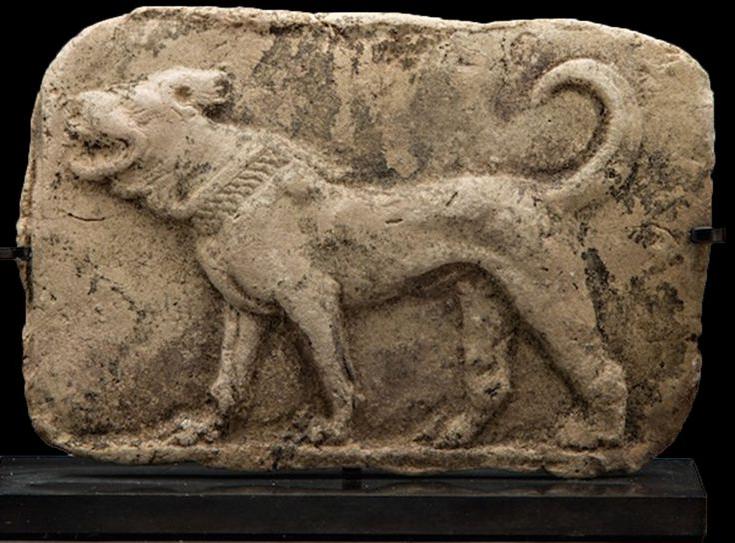
Early Development of the Breed
The Assyrian Mastiff traces its roots back to the cradle of civilisation, ancient Mesopotamia. This breed evolved over centuries, adapting to the harsh landscapes and climates of the region. Initially bred for their strength and resilience, these dogs were essential for protecting livestock from predators and guarding homes. Their development was influenced by the need for a reliable and robust companion, capable of enduring the challenges of the time.
Role in Ancient Assyrian Culture and History
In ancient Assyrian culture, the Mastiff was more than just a working dog; it was a symbol of power and protection. These dogs were often depicted in art and literature, showcasing their importance in society. They were revered for their loyalty and bravery, often accompanying soldiers into battle. Their presence was a testament to the strength and prosperity of the Assyrian empire.
Key Historical Figures and Events
One notable figure associated with the Assyrian Mastiff is King Ashurbanipal, who ruled during the height of the Assyrian empire. His palace walls were adorned with reliefs depicting these majestic dogs, highlighting their esteemed status. The breed’s legacy continued through various historical events, serving as a steadfast guardian and companion throughout the ages.
Physical Characteristics

Appearance
The Assyrian Mastiff is a sight to behold, with its impressive size and commanding presence. These dogs are large, often weighing between 50 to 70 kilograms, and standing tall at the shoulder. Their coat is typically short and dense, coming in a variety of colours including fawn, brindle, and black. Some may have distinctive markings, like a white chest or paws, adding to their unique look.
Unique Physical Traits
What truly sets the Assyrian Mastiff apart is its robust and powerful build. These dogs have a muscular frame, designed for strength and endurance. Their broad head and strong jaw give them a formidable appearance, yet their eyes often convey a gentle and intelligent expression. This combination of strength and gentleness is what makes them such a remarkable breed. Their thick neck and sturdy legs are built for both protection and agility, making them excellent guardians and companions.
Temperament and Behaviour

Typical Personality Traits
The Assyrian Mastiff is known for its loyalty, protectiveness, and intelligence. These dogs form strong bonds with their families, often going to great lengths to ensure their safety. Their protective nature makes them excellent guardians, while their intelligence allows them to quickly learn commands and adapt to various situations. Despite their imposing presence, they are gentle and affectionate with those they trust.
Suitability as a Family Pet and Guardian Dog
As a family pet, the Assyrian Mastiff is both a loving companion and a vigilant protector. Their natural instincts make them well-suited for guarding homes, while their gentle disposition ensures they fit seamlessly into family life. They thrive in environments where they can be part of the family, enjoying both playtime and relaxation with their loved ones.
Interaction with Children and Other Animals
These dogs are generally good with children, displaying patience and tolerance. However, due to their size, supervision is recommended during interactions with young kids. With proper socialisation, they can coexist peacefully with other animals, although their protective instincts may require careful introductions to new pets. Overall, the Assyrian Mastiff is a versatile and reliable addition to any household.
Training and Exercise Needs
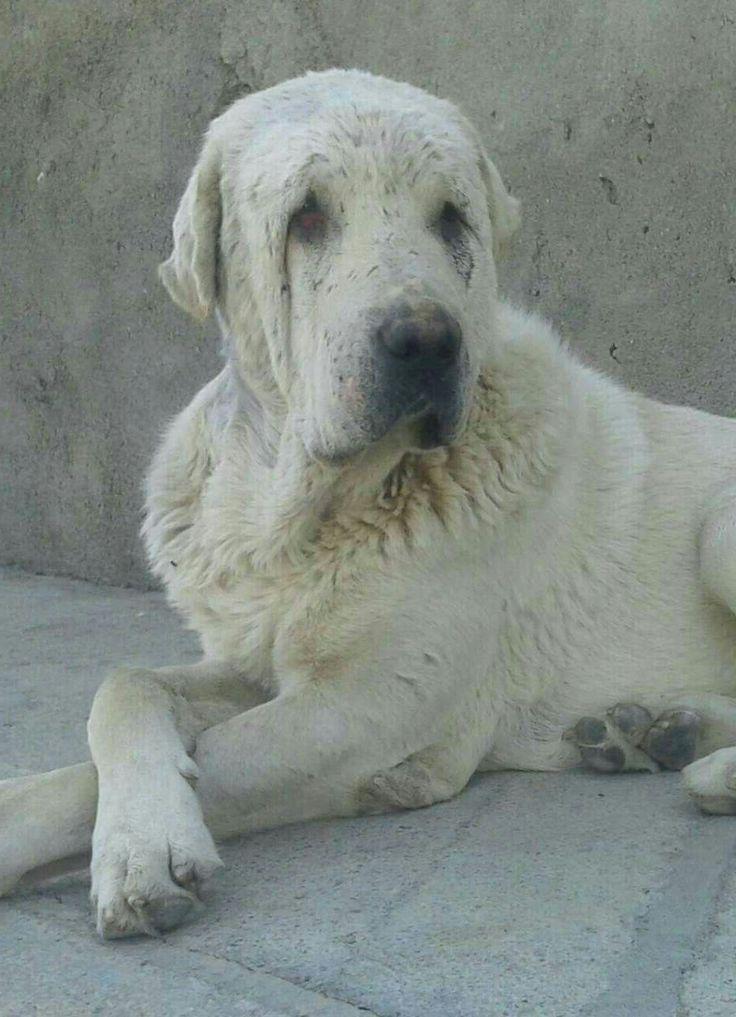
Importance of Early Training and Socialisation
Getting started with training and socialisation early is crucial for the Assyrian Mastiff. These dogs are naturally protective, so introducing them to different people, environments, and other animals from a young age helps them grow into well-rounded adults. Early exposure reduces the risk of overprotectiveness and ensures they are comfortable in various situations.
Recommended Training Techniques
Positive reinforcement is the way to go with these intelligent dogs. They respond well to praise, treats, and play as rewards for good behaviour. Consistency is key, so regular training sessions will help reinforce commands and behaviours. Avoid harsh methods, as they can lead to fear or aggression.
Daily Exercise Requirements and Activities They Enjoy
The Assyrian Mastiff needs daily exercise to stay healthy and happy. A couple of walks a day, combined with some playtime in a secure yard, usually does the trick. They enjoy activities that challenge their minds and bodies, like agility courses or interactive games. Keeping them active helps prevent boredom and unwanted behaviours.
Health and Lifespan

Common Health Issues
The Assyrian Mastiff, like many large breeds, can be prone to certain health issues. Hip dysplasia is a common concern, given their size and weight. Regular vet check-ups can help catch this early. They may also experience bloat, a serious condition that requires immediate attention. Keeping an eye on their diet and feeding them smaller, more frequent meals can help mitigate this risk.
Average Lifespan and Tips for Keeping Them Healthy
On average, the Assyrian Mastiff lives between 10 to 12 years. To ensure they reach their full lifespan, a balanced diet and regular exercise are essential. These dogs thrive on routine, so maintaining a consistent schedule for feeding and activity is beneficial. Mental stimulation is just as important as physical exercise, so engage them with puzzle toys or training sessions.
Preventative Care Recommendations
- Regular vet visits for vaccinations and health screenings.
- Maintain a healthy weight to reduce stress on joints.
- Brush their teeth regularly to prevent dental issues.
- Check ears and clean them to avoid infections.
- Provide joint supplements if recommended by your vet.
By following these preventative care tips, you can help your Assyrian Mastiff lead a long, healthy life.
Grooming and Maintenance
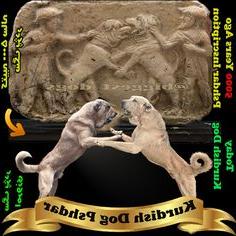
Coat Care and Grooming Routines
The Assyrian Mastiff’s coat is short and dense, making it relatively low-maintenance. Regular brushing, about once a week, helps keep their coat healthy and shiny. Use a firm bristle brush to remove dirt and distribute natural oils. This routine not only keeps their coat looking great but also strengthens the bond between you and your dog.
Shedding and Seasonal Grooming Tips
While they don’t shed excessively, the Assyrian Mastiff does experience seasonal shedding, typically in spring and autumn. During these times, increase brushing to a few times a week to manage loose hair. A deshedding tool can be handy for removing the undercoat. Bathing should be occasional, only when necessary, to avoid stripping their coat of essential oils. Always use a dog-specific shampoo to maintain their skin’s health.
Diet and Nutrition
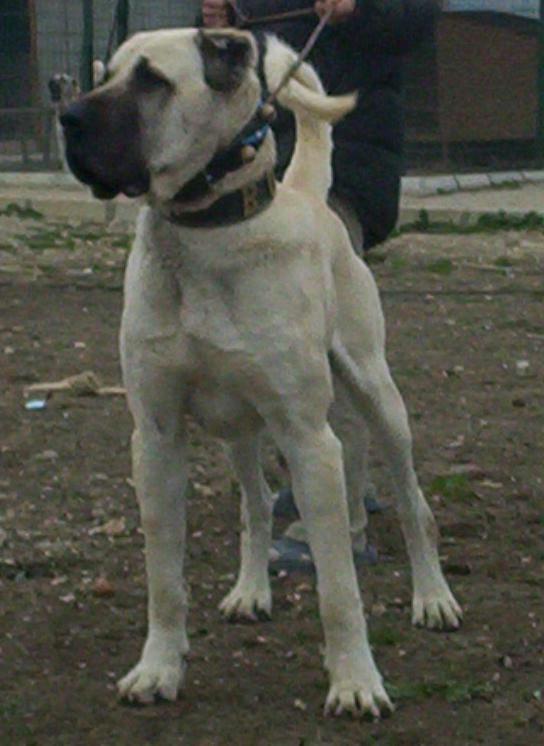
Nutritional Needs for Optimal Health
Feeding your Assyrian Mastiff the right diet is crucial for their health and vitality. These large dogs need a balanced diet rich in protein to support their muscular build. Look for high-quality dog food that lists meat as the first ingredient. Omega-3 and Omega-6 fatty acids are also important for maintaining a healthy coat and skin.
Foods to Include and Avoid
Include lean meats, fish, and vegetables in their diet to provide essential nutrients. Avoid foods high in fillers like corn and soy, as they offer little nutritional value. Steer clear of processed foods and those with artificial additives, which can lead to health issues over time.
Feeding Schedules and Portion Recommendations
Establishing a regular feeding schedule helps maintain their digestive health. Split their daily intake into two meals to prevent bloat, a common issue in large breeds. Portion sizes depend on their age, weight, and activity level, so consult your vet for tailored advice. Always provide fresh water to keep them hydrated.
Fun Facts and Trivia
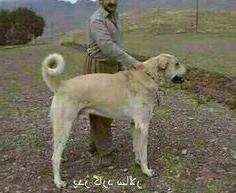
Interesting Tidbits About the Breed
The Assyrian Mastiff, also known as the Mesopotamian Mastiff, is one of the oldest dog breeds, with a lineage that dates back thousands of years. These dogs were not only protectors but also symbols of status and power in ancient times. Their impressive size and strength made them ideal for guarding against predators and intruders.
Despite their formidable appearance, Assyrian Mastiffs are known for their gentle and calm demeanour. They are often described as “gentle giants,” a testament to their ability to balance strength with a loving nature. This unique combination makes them excellent family companions.
Famous Assyrian Mastiffs in History or Culture
Throughout history, Assyrian Mastiffs have been depicted in various forms of art and literature. They were often featured in ancient Assyrian reliefs, showcasing their importance in society. These dogs were not just pets; they were part of the cultural fabric, representing loyalty and protection.
In modern times, the breed has gained recognition for its historical significance, with enthusiasts and historians alike celebrating its rich heritage. The Assyrian Mastiff continues to be a symbol of strength and resilience, admired by dog lovers around the world.
Final Thoughts
The Assyrian Mastiff is a majestic blend of history and loyalty. This ancient breed offers both a protective presence and a gentle companionship. Owning an Assyrian Mastiff requires commitment to their exercise and socialization needs, but the rewards of their loyalty and intelligence are immense. Embrace the journey of caring for this remarkable breed, and you’ll gain a steadfast guardian and a loving family member. Consider welcoming an Assyrian Mastiff into your home to experience a living piece of history.
